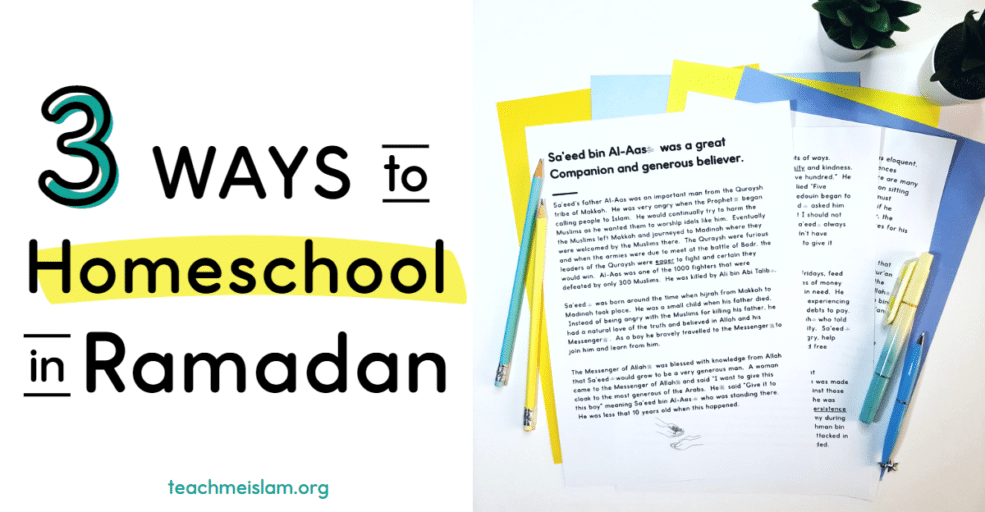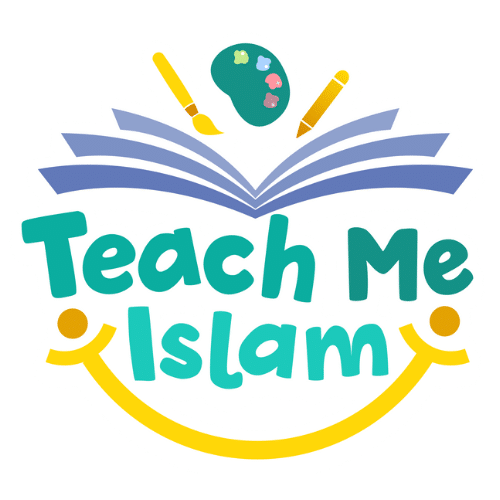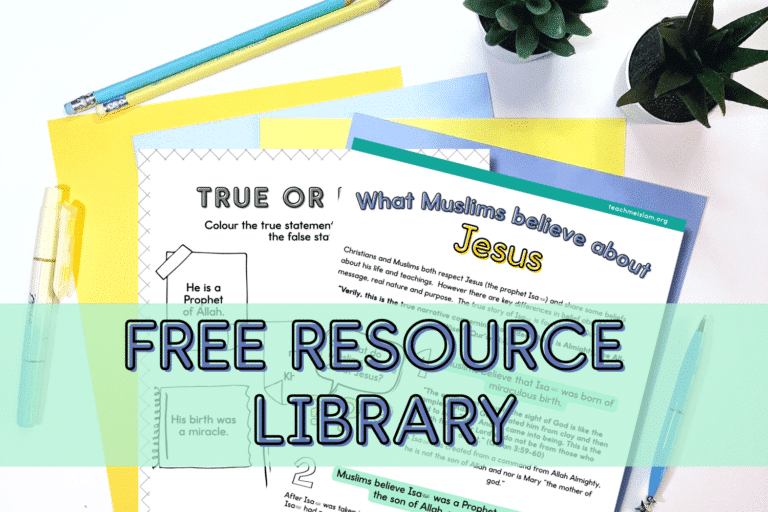Lots of families like to stop their homeschool in Ramadan. But what if you need to continue homeschooling in Ramadan to meet your academic goals for the year? You might even want to use your homeschool structure and routine to really focus on Islamic studies during Ramadan. Read on for some suggestions on how to homeschool in Ramadan in a way that benefits your whole family.
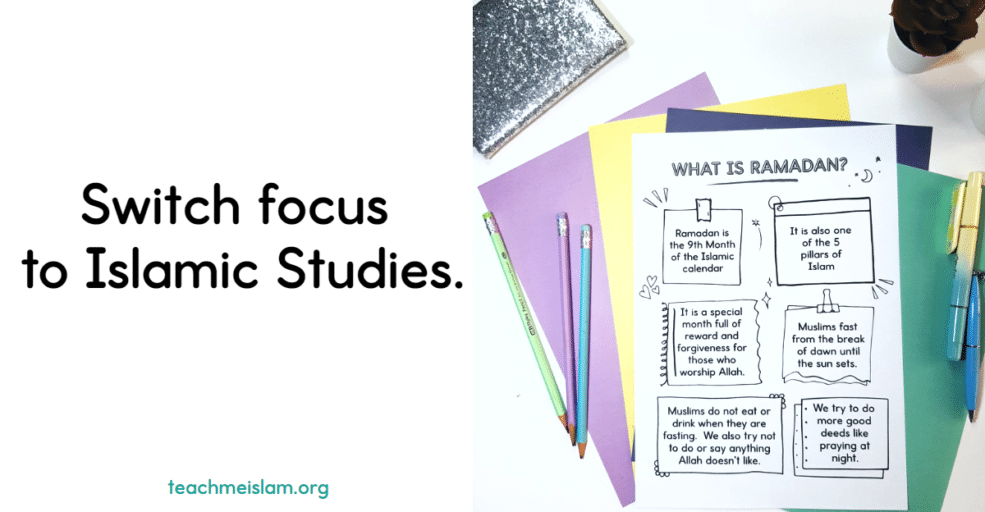
Switch focus to Islamic Studies in your homeschool in Ramadan
A Muslim homeschool already teaches children that home is a place of study and learning. This is a great advantage if you are a Muslim homeschooler trying to teach your kids about Islam in Ramadan. You can benefit from the structure and routine you have established to solely focus on Islamic studies.
You could choose a special project for the month, for example, tafsir of a certain surah, learning about Qur’an and the manners of interacting with it, the fiqh of Ramadan or just a general refresher on the pillars of Islam, Eemaan and Aqeedah.
Younger kids benefit from hands-on learning. This Ramadan unit contains 15 Ramadan-themed activities to help kids learn about Islam in an engaging way. You can find it on Etsy and TPT.
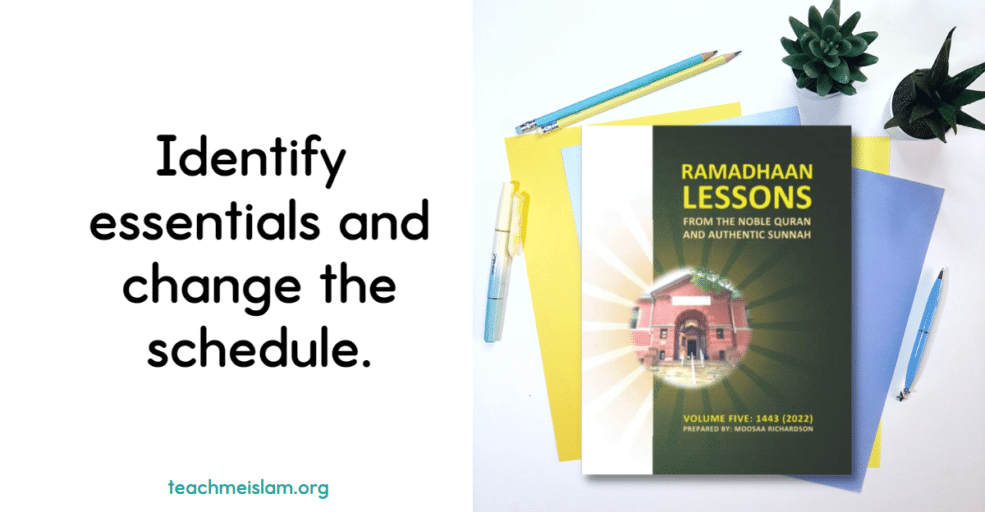
Identify essentials of your homeschool in Ramadan
If you have older kids, especially those with upcoming exams it may not be at all possible to switch fully to Islamic studies. In this case, it’s a good idea to identify the essential subjects and then make Islamic studies a priority alongside it. It doesn’t have to be a heavy project but enough so kids understand seeking Islamic knowledge should remain a priority in Ramadan even when you have a lot of other commitments.
This series of Ramadan lessons is perfect for older kids. There are hadith and tafsir lessons for every day of Ramadan. The hadith lessons are around 30 mins long and there is an accompanying workbook available. Ustaadh Moosaa Richardson (may Allah preserve him) is a very clear teacher and the clear lesson structure makes it easy to follow along.
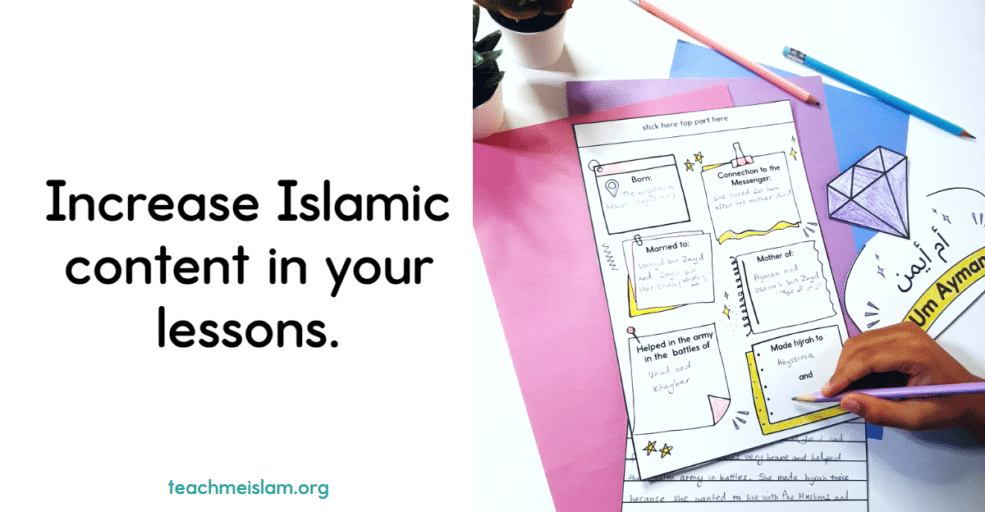
Increase Islamic content in your lessons
If you would like to carry on with your normal homeschool routine but still increase focus on Islam during Ramadan, you can simply change your content.
For example:
Reading passages ➡️ Islamic texts e.g. 💡 10 Promised Paradise (Etsy / TPT)
Comprehensions ➡️ Islamic comprehensions e.g. 💡 Child Companions (Etsy / TPT)
Copywork ➡️ Qur’anic copywork 💡 e.g. Prophets of Islam Copywork (Etsy / TPT)
Continents ➡️ Muslim World e.g. 💡 Arabian Peninsula Unit Study (Etsy / TPT)
Science ➡️ Animals in the Qur’an 💡 Animals in the Qur’an Poster Project (TPT)
Geography ➡️ Masjid Al-Aqsa Virtual Field Trip FREE on TPT
You can join the e-mail list here to gain access to the free resource library that contains lessons and worksheets with Islamic content to use in your homeschool.
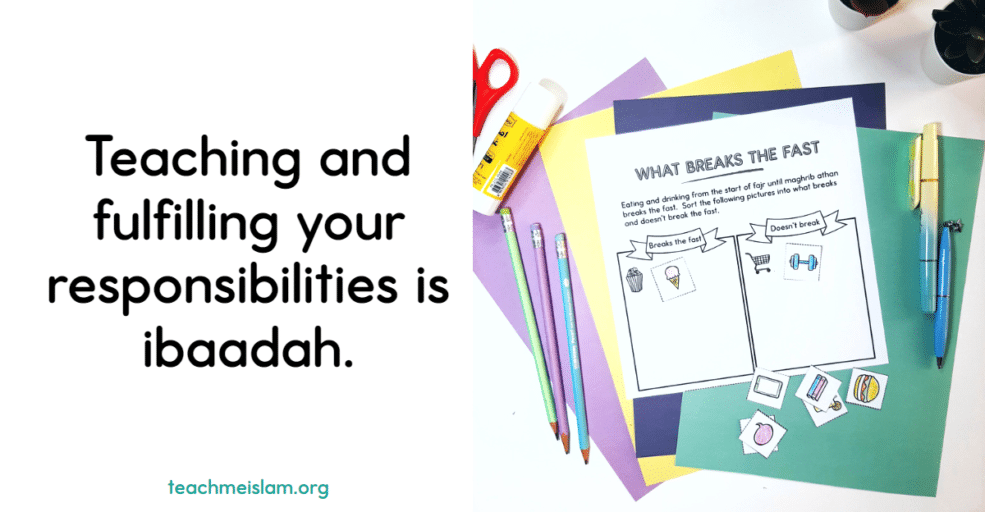
Teaching and fulfilling your responsibilities is ibaadah
Alhamdulillah, many Muslim parents have ambitious goals for their own Ramadan ibaadah. It can sometimes feel like homeschooling can interfere with those goals but with the right intention it is ibaadah. Educating your children about Islam is a great way of earning reward in Ramadan because it is fulfilling your obligation as a parent and it’s a form of sadaqah jariyah. Reminding ourselves of this and correcting our intention will make the month’s homeschooling go smoothly and productively inshaAllah.
Free resources to help you teach kids about Islam
I hope you have found this post on ways to homeschool in Ramadan useful. If you would like to get a FREE resource designed specifically to help Muslim families teach their kids about Islam then join the mailing list here to download a biography pack about one of the Noble Companions promised paradise, Abu Ubaidah bin Jarrah (may Allah be pleased with him) and gain access to the free resource library.
Here are some other blog posts you may be interested in:
How to teach Islamic content all day long
5 types of Ramadan activities for young kids to try this Ramadan

